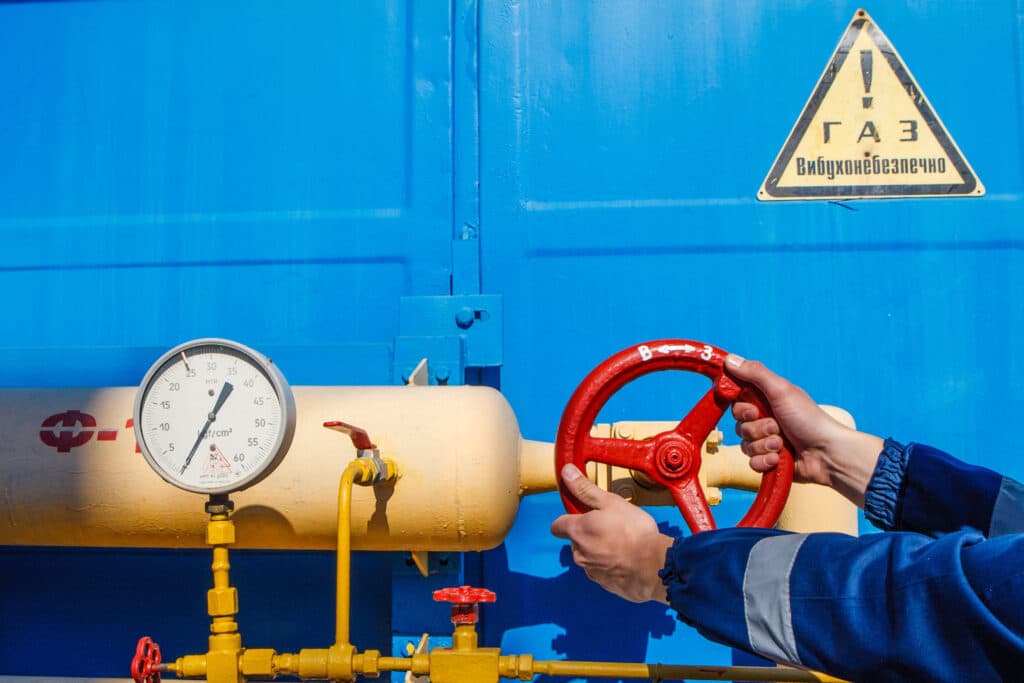Russian gas transit to Europe through Ukraine continues to this day, Russian President Vladimir Putin said during an interview with Rossiya 1 TV channel’s Pavel Zarubin.
The president’s remarks come amid the ongoing military conflict between Moscow and Kyiv.
“They receive money from us for transit, as strange as it may sound,” President Putin remarked, shedding light on the financial transactions under the existing five-year pipeline transit agreement between Russia and Ukraine. This agreement facilitates the export of gas to Europe through Ukraine's pipeline network, with Russia compensating Ukraine for its usage.
President Putin also expressed his confusion over Ukraine's decision to cut off a second gas pipeline line that passes through its territory. Considering that Ukraine receives transit payments, he questioned the reasoning behind this action.
"One line of the gas pipeline operates through Ukraine, but there is another one. The Ukrainian side has closed it - not we, they closed it. Though what is the point of closing? They receive money for transit from us strange though it may appear,” he said.
The expiration of the five-year agreement at the end of 2024 adds a layer of uncertainty to the longstanding economic ties between Russia and Europe. While Kyiv has stated its intention not to extend the agreement, Russian officials have confirmed the absence of ongoing negotiations with Ukraine or the EU regarding its renewal.
With the expiration looming, Europe has been diversifying its energy sources and reducing its reliance on Russian gas.
Since Russia’s invasion of Ukraine in February 2022, European countries have been focusing on how to wean themselves off Russian oil and gas. Officials in the US and the UK have already said their countries will stop buying Russian oil. Other European leaders have focused on limiting their imports over the next several years through conservation, finding alternative sources, and switching to wind and solar power as early as possible.
Comprising 27 countries with a total population of 447 million people, the European Union is one of the largest and most prolific markets for energy exporters, given its lack of domestic resources.
Europe's gas supply dynamics have shifted significantly since the onset of the conflict in Ukraine, with Russia reducing gas deliveries to Europe. However, Europe's collective response, including investments in LNG infrastructure and renewable energy, has softened the impact of reduced Russian gas supply.
Despite efforts to phase out Russian gas imports by 2027 under initiatives like the REPowerEU program, some countries remain pragmatic in their approach due to economic considerations.
Slovakia, Hungary, Austria, and Italy, among the main buyers of Russian gas, have adapted their foreign policies to balance pragmatism with geopolitical concerns. While Russian gas remains competitively priced compared to liquefied natural gas (LNG), European countries have invested heavily in LNG terminals and renewable energy to mitigate dependency.







 President Ilham Aliyev shed light on the evolving contours of the peace process with Armenia during an international conference in Baku this week. ...
President Ilham Aliyev shed light on the evolving contours of the peace process with Armenia during an international conference in Baku this week. ...
 Azerbaijan and Armenia started the process of demarcation of their border on Tuesday, with the installation of the first border markers based on ge...
Azerbaijan and Armenia started the process of demarcation of their border on Tuesday, with the installation of the first border markers based on ge...
 Iran and Pakistan have signed eight cooperation documents in various fields, and agreed to strengthen ties to fight terrorism in the region.
Iran and Pakistan have signed eight cooperation documents in various fields, and agreed to strengthen ties to fight terrorism in the region.
 As the conflict between Ukraine and Russia escalates, the strategic importance of Kharkiv, Ukraine's second-largest city, has come sharply into focus.
As the conflict between Ukraine and Russia escalates, the strategic importance of Kharkiv, Ukraine's second-largest city, has come sharply into focus.
 Iranian President Ebrahim Raisi expressed Tehran’s readiness to participate in significant development projects in Sri Lanka during the inauguratio...
Iranian President Ebrahim Raisi expressed Tehran’s readiness to participate in significant development projects in Sri Lanka during the inauguratio...



